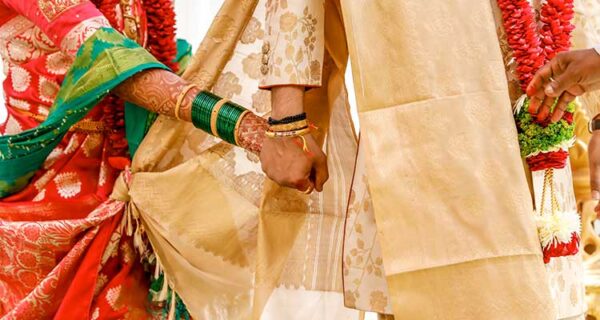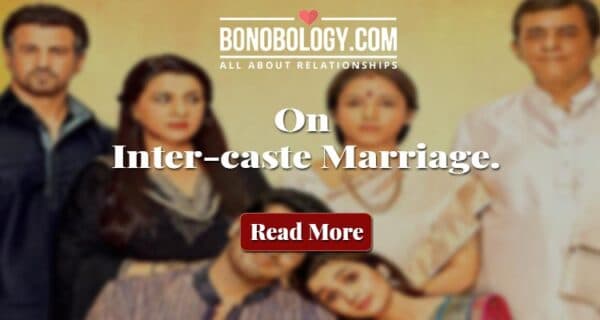Marriage In Different Cultures – Traditions And Customs
I was the first bride among friends, so naturally, all our common friends were looking forward to our wedding being great. While there was endless love and happiness in the air, the wedding preparations brought out stark cultural differences between us and our families. We realized that it was a intercultural wedding and so we would run into a few disagreements and tussles, but this was more than that. A wedding in different cultures has various unique aspects, but it is still a union of those two people, and their cultures too. My husband, a Tamilian Brahmin, said strictly no non-vegetarian food, dancing or drinks on the wedding day for the sake of conservative elders in his family. They had agreed to have the ceremony in the Punjabi style, which doesn’t start early in the morning like Tamilian weddings but promises to go on till the wee hours. We decided to have a 3-D’s (Dance, Dinner and Drinks) cocktail party before the wedding day. The groom’s side wanted the wedding in pleasant weather and not peak winter in Delhi, so that their relatives would be comfortable. We chose February, expecting it to be neither so cold that the Chennai-ites were stuck indoors, nor too hot for the Punjabis to dance. However, that year, on the day of the cocktail party, there was a stiff breeze blowing, which made it extremely cold, and our families dealt with it in their own unique ways. On one side were my husband’s uncles were sitting before the heaters with shawls wrapped around their heads, drinking hot soup. On the other side, my cousins were walking around in backless and halter blouses, sipping on interesting cocktail recipes, completely unaffected by the cold. Never had our differences been more charmingly, or terrifyingly, evident. They seemed to forget all about wedding customs in different cultures and adopted whatever seemed comfortable to them. Scotch and wine was flowing and half of the groom’s side also had a glass in their hands. They had come up with this way of beating the cold and mingling with the Punjabi ‘spirit’ of partying. In Punjabi weddings, the lyrics don’t matter; it only matters that the music is at full volume. Even though weddings in different cultures follow different rules, booze somehow brought the entire family together.
They started mingling
The DJ was playing typical Bollywood music and the groom’s entire family was on the dance floor. My friends and family barely got a chance to get on the dance floor, but they were happily swaying to the music where they stood. The groom’s side, inspired by Bollywood movies, had prepared elaborate performances for the Punjabi sangeet event to impress our family. True to their upbringing, they had meticulously planned and prepared detailed introductions of all their family members with a song dedicated to each person. In contrast, we had just a series of dance performances by all the family members where the motive was just to dance and get a little crazy on the dance floor.
The contrasts in a cross-cultural marriage
The next day was the wedding. The baraat or groom’s procession was given as 7:00 pm on the wedding invites and I had told my husband to come by 7:30 pm. In Punjabi weddings, baraats are known to reach an hour or two after the given time due to last minute delays, dancing time in the procession or simply to make a grand late entry. But this was an intercultural marriage so obviously, things would not go exactly as we thought.
However, at 6:45 pm, while my dad and uncles were checking last-minute arrangements at the venue, and my mom and aunts and cousins were on their way, the procession showed up! Imagine all of us hustling to make sure things were ready since we weren’t expecting the groom’s party that early. I keep thinking about how, had this been a virtual wedding like some have been ever since Covid-19 hit, this would never be a problem.
One of their cars had got lost on the way and they decided to wait for it; otherwise they would have been even earlier. My husband later told me that on the cocktail party day, they were slightly late and a family conference had been held therefore to ensure everyone ‘reported’ on time for the wedding.
The contrast in dressing styles was evident also. The Punjabi side was clad in vibrant colors, as if for their own wedding, with their best polki and diamond sets, perfect hair and make-up in place. The other side was in simpler yet elegant Kanjeevaram silks with gold temple jewelry, big bindis and minimal make-up. While the Punjabi women were wearing such varied shades whose names men may not even know (coral, crimson, teal and whatnot), some women on the groom’s side ended up wearing the same shade of blue, almost as if they were following a dress code.
The Beauty Of An Intercultural Marriage
Who knew that all the ups and downs of that intercultural marriage ceremony would lead to this. Now this is a marriage, where we celebrate not one culture but two. We are not one personality but two. What’s best is that we love each other fiercely for it. It has been almost 9 years since our wedding. I’m yet to learn how to make the perfect sambar. He looks forward to Punjabi gatherings where he can chill out. I still need my spoon to eat rice. He’s yet to develop a taste for makki di roti and sarson da saag. My mother in law teaches me Tamil sometimes. He calls the shots when we have to attend official events, but I decide the time we leave for other parties. Much like the differences in our personalities, we also have very different approaches to parenting our 4-year-old son. My husband disciplines him by being strict, whereas I’m more patient, trying to explain why we aren’t letting him do something. The punch, twists and sweetness of this cocktail of differences ensures a great marriage ‘high’. I’m happy we are not the same and neither do we have the same approach to things. Especially now when raising a child, he gets to learn so, so much from us. Some people believe in multicultural marriage counseling to overcome these differences. Luckily, my husband and I don’t think we need any yet. This cross cultural marriage was the most beautiful thing to happen to me which brings a new learning experience for me each day.



